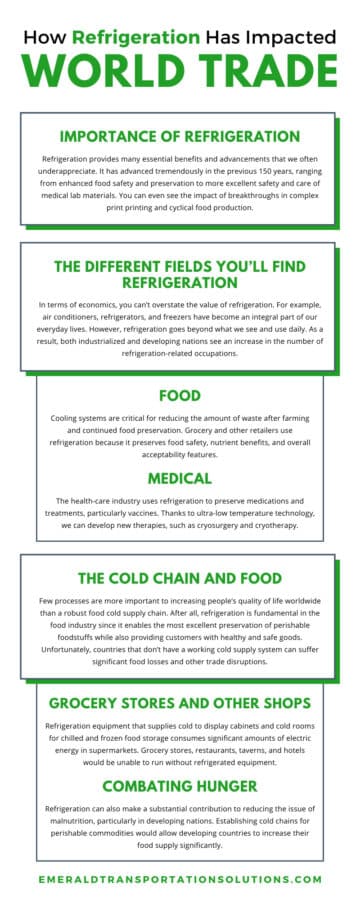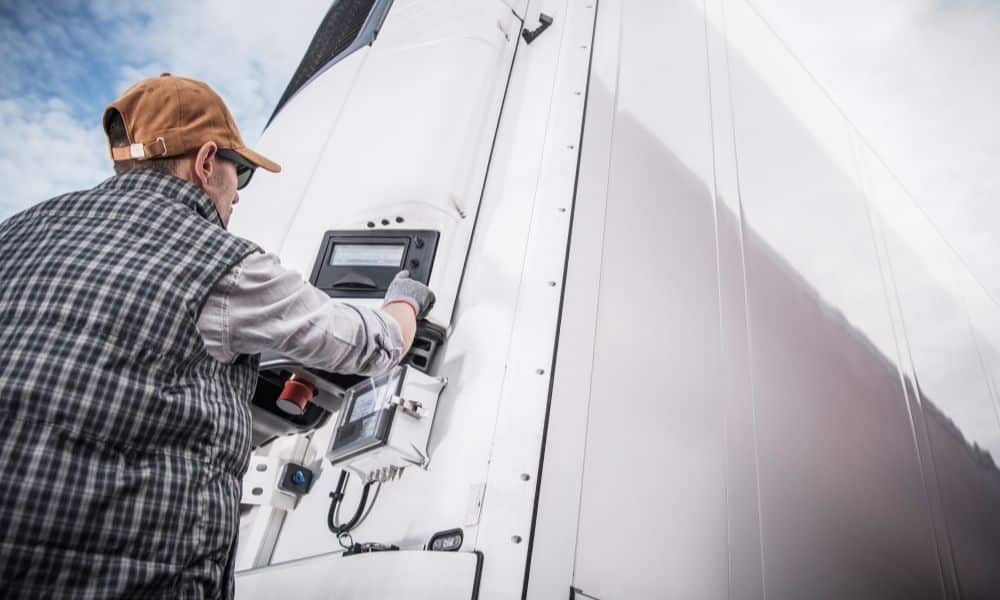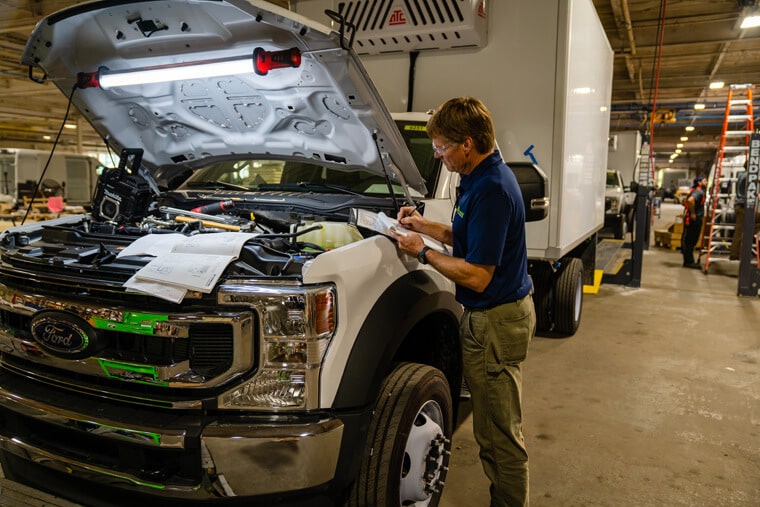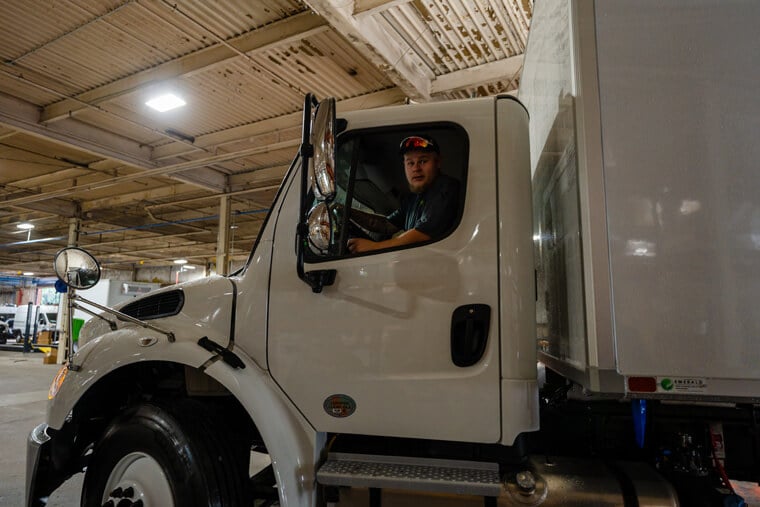
How Refrigeration Has Impacted World Trade
Todd Cawley | April 14th, 2022
Could you imagine a world without grocery stores or restaurants? Most contemporary comforts would be impossible to achieve without the cold chain, led by refrigerated vehicles. You can carry out many things when you can securely transport perishable goods across the world.
In fact, the cold chain is a critical part of the global economy. For example, you may eat vegetables and fruit at any time of year, obtain medications to keep you healthy, have a pint or two on weekends, etc. In this article, we dive into how refrigeration has impacted world trade.
Importance of Refrigeration
Refrigeration provides many essential benefits and advancements that we often underappreciate. It has advanced tremendously in the previous 150 years, ranging from enhanced food safety and preservation to more excellent safety and care of medical lab materials. You can even see the impact of breakthroughs in complex print printing and cyclical food production.
Furthermore, refrigeration technology has contributed significantly to expanding industrial output in the United States and the rest of the world. As a result, refrigeration has become a multibillion-dollar business. Commercial refrigeration is growing and expanding because of innovative technology, global food networks, and evolving food consumption habits.
Imagining a World Without Refrigeration
A planet without refrigeration would have enormous ramifications for modern life. Our lives would be much less comfortable and safe. Food would deteriorate quicker, and disease could spread more easily.
We couldn’t do some medical studies because of the lack of refrigerated conditions. In addition, food production and storage would become more difficult to control. Lastly, the global economy and trade would be completely different.
The Different Fields You’ll Find Refrigeration
In terms of economics, you can’t overstate the value of refrigeration. For example, air conditioners, refrigerators, and freezers have become an integral part of our everyday lives.
However, refrigeration goes beyond what we see and use daily. As a result, both industrialized and developing nations see an increase in the number of refrigeration-related occupations.
Food
Cooling systems are critical for reducing the amount of waste after farming and continued food preservation. Grocery and other retailers use refrigeration because it preserves food safety, nutrient benefits, and overall acceptability features.
Medical
The health-care industry uses refrigeration to preserve medications and treatments, particularly vaccines. Thanks to ultra-low temperature technology, we can develop new therapies, such as cryosurgery and cryotherapy.
Manufacturing and Science
You can find refrigerated processes in manufacturing, including those found in the food and beverage industries and chemical and plastic processing. Moreover, cooling technology serves as the foundation for heat pumps, which conserve energy and reduce carbon emissions in various industrial and construction uses.
In terms of energy, you can liquefy natural gases by cryocooling, making transportation and storage more accessible and less expensive. Lastly, refrigeration is at the core of major strategic scientific undertakings, like CERN’s Large Hadron Collider.
The Cold Chain and Food
Few processes are more important to increasing people’s quality of life worldwide than a robust food cold supply chain. After all, refrigeration is fundamental in the food industry since it enables the most excellent preservation of perishable foodstuffs while also providing customers with healthy and safe goods. Unfortunately, countries that don’t have a working cold supply system can suffer significant food losses and other trade disruptions.
There are many opportunities for sustained expansion in the refrigerated food industry to fulfill the continued need for practical food preservation. In particular, refrigerated vehicles will need to expand to store and distribute food to consumers worldwide safely.
Grocery Stores and Other Shops
Refrigeration equipment that supplies cold to display cabinets and cold rooms for chilled and frozen food storage consumes significant amounts of electric energy in supermarkets. Grocery stores, restaurants, taverns, and hotels would be unable to run without refrigerated equipment. Therefore, refrigerated vehicles are at the forefront of delivering perishables to these different storefronts.
Combating Hunger
Refrigeration can also make a substantial contribution to reducing the issue of malnutrition, particularly in developing nations. Establishing cold chains for perishable commodities would allow developing countries to increase their food supply significantly.
Air Conditioning for Comfort and Industrial Activity
The refrigeration industry would not be complete without air conditioning. As a result, it’s becoming more widely used for personal comfort and industrial activities.
Hotter regions and zones with excessive air humidity have seen tremendous economic development due to the advent and spread of air-conditioning technology during the last 60 to 70 years. After all, we’re most comfortable in a given temperature and humidity range, and they require a set amount of fresh air to breathe.
Industrial Usage
HVAC stands for Heating, Ventilation, and Air Conditioning. Large buildings or structures require industrial HVAC systems for heating, cooling, and ventilation. You can often find these systems on the roofs of buildings, such as hospital facilities or retail locations.
Essentially, most commercial real estate relies on air conditioning to build office buildings, stores, banks, etc. In addition, as our economy increasingly depends on the internet and eCommerce, cloud computing is more important than ever before. Data centers, which house the servers and other equipment to run these applications, depend on air conditioning to reduce the heat of their machines.
Health Care and Medical Applications
Refrigeration has a substantial effect on human health via food and pharmaceutical preservation and innovative low-temperature medicinal procedures. Freezing temperatures restrict the development of germs and harmful pathogens, consequently minimizing foodborne illnesses. Refrigeration significantly reduces the need for chemical preservatives in food, which has contributed to the reduction of stomach cancers in the global population.
Market Impact
According to the Industrial Infor Resources (IIR) International Conference on Sustainability and the Cold Chain, heat-sensitive health commodities held at a regulated temperature (especially between two degrees Celsius and eight degrees Celsius) have enjoyed phenomenal global market expansion. The annual turnover of such items rises by more than 20 percent. While these pharmaceuticals account for only 2 percent of overall medical volume, their value reaches 15 percent.
Vaccinations
We’ve seen the immediate positive impact of refrigeration and vaccines in recent years. To avoid deterioration, you need to keep vaccines under precise temperatures, which the manufacturer typically specifies. Vaccines must stay under these conditions throughout the cold chain’s stages of manufacturing, distribution, storage, and, finally, administration.
Role of Refrigerated Vehicles
Improper temperatures or a delayed trip can often spoil medical shipments. Pharmaceutical supply chains can improve their transportation efficiency with a dependable, high-quality fleet of refrigerated trucks.
When you consider how refrigeration has impacted world trade, it’s clear that we’ll continue to see significant development and economic potential because of this vital technology. Emerald Transportation Solutions is proud to offer beverage trucks for sale that can effectively deliver a comprehensive selection of drinks and other products. Feel free to contact us with any questions about our vehicles.
Related Articles
Contact Us
Feel Free To Contact Us If You Have Any Questions
What does under DOT mean?
Questions regarding DOT requirements come up often. 10,000 lbs GVW (gross vehicle weight) and over are commercial vehicles that fall under the Department of Transportation regulatory requirements.
What is the difference between GVW and payload?
GVW or Gross Vehicle Weight is the entire weight of the vehicle including the payload. The payload weight represents the amount of cargo you are hauling.
What is a self-powered unit and a vehicle-powered unit?
A self-powered unit has its own fuel source and will run independent of the truck. This is the heaviest and most expensive option. While vehicle-powered units run off the engine via a compressor mounted on the engine. These are less expensive and lighter in weight but you must run the truck or plug the electric standby into shore power.
What does K-factor mean and why is that important?
K-factor is a term that stands for the overall insulating value of the container (truck body). Quite simply the lower the K-factor the better the truck body will be able to maintain a given temperature and require less energy to do so.
How much lighter is a Poly Van vs a US spec body?
Poly Van bodies are very light. On average we estimate we are 75-150 lbs per foot lighter than a traditional sheet and post foamed in place body. These weight savings translates to less fuel burn and less CO2 emissions, along with added payload, the most important benefit.






